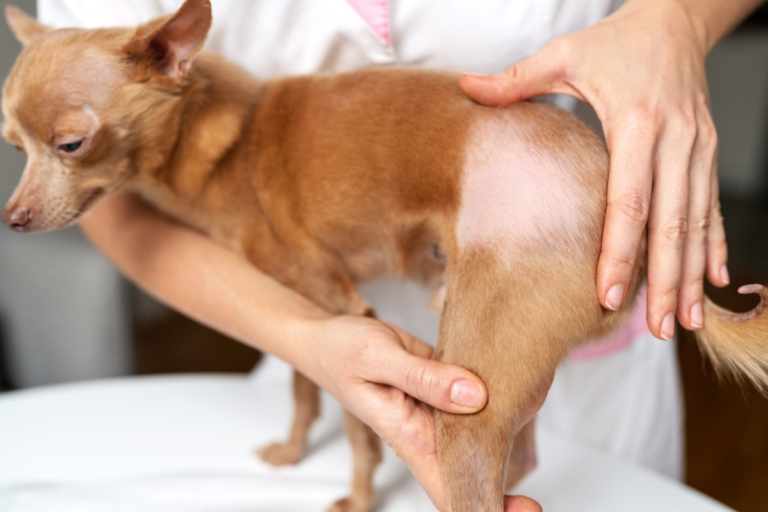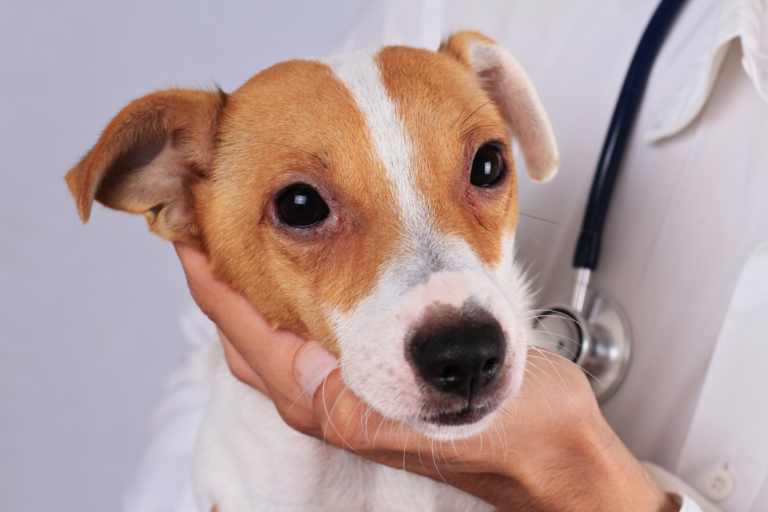Shielding Our Best Friends: Strategies Against Canine Disease
Understanding Canine Health
Keeping our dogs healthy and happy can feel like a full-time gig, right? It’s all about staying on top of their veterinary check-ups and dodging those pesky diseases with smart prevention tactics.
Importance of Veterinary Check-ups
Trips to the vet? Yep, they’re more than just a chance for our dogs to charm everyone with their wiggly tails. Regular vet visits are a secret weapon for catching potential health bumps before they become mountains. Vets have this magical ability to spot things we might not even notice, like early signs of illness. According to trusty PetMD, don’t be shy about spilling all the beans on any weird symptoms Fido might be showing, even between appointments. The earlier we catch stuff, the better!
When we roll into the vet’s office, they might check a bunch of things, depending on our dog’s age, breed, and health history. Here’s the scoop on some typical tests they might throw our way:
| Test | What It’s For |
|---|---|
| Blood Test | Checks for infections, anemia, diabetes, and organ shenanigans |
| Urinalysis | Sniffs out urinary infections, kidney troubles, and sneaky diabetes |
| Fecal Exam | Finds parasites and digestive drama |
| X-rays | Peeks at bones, heart, lungs, and tummy organs |
Annual visits are a must for adult dogs, but puppies and our wise old senior pups might need more frequent drop-ins. For the full scoop on why regular check-ups matter, head over to our yearly check-up essentials page.
Disease Prevention Measures
Stopping diseases in their tracks is all about keeping our four-legged pals comfortable and wagging. Let’s break down the top strategies to stay ahead of the game:
1. Vaccinations
Vaccines are like the superheroes of the doggy world, swooping in to stop infections before they take hold. The American Kennel Club has put together some top hits like rabies, distemper, and parvovirus. Get those vaccines lined up!
| Vaccine | Fights Off |
|---|---|
| Rabies | Rabies Virus |
| DHPP | Distemper, Hepatitis, Parvovirus, Parainfluenza |
| Bordetella | Kennel cough |
| Leptospirosis | Sneaky Leptospirosis Bacteria |
2. Parasite Control
No one likes freeloaders, especially not the flea and tick kind. Stock up on preventatives to keep them at bay. Get the lowdown on handling those ticks in our article about dogs and ticks.
3. Dental Care
Who knew brushing teeth could help keep a whole lot more than pearly whites in check? Regular brushings and vet cleanings keep mouth woes from spreading trouble inside. Tackle gum issues with tips from dog gum disease.
4. Balanced Nutrition
Keeping a meal plan that packs a nutritional punch helps our dogs get their energy bounce. Tailor their meals to fit their age, size, and zoom level. For diet ideas, check out healthy hounds.
5. Proper Hygiene
A clean pup is a happy pup, right? Bath time and grooming help fight off germs. Check out what the AAHA says about keeping those nasties away.
6. Antibiotic Use
Following through with antibiotics as the vet says is a no-brainer—finishing the course helps stop superbugs in their tracks. Keep your guard up with tips from the AAHA.
Wanna know what specific illnesses might attempt to crash your dog’s party? Visit common diseases in dogs for the down-low. Staying sharp and caring pays off big time in ear scratches, tail wags, and happy snuggles with our furry crew.
Common Diseases in Dogs
Knowing what might ail our pooches keeps them wagging their tails. We’ll chat about buggy illnesses, the kinda mean parasites, and those pesky bone and muscle troubles.
Infectious Diseases
Dogs catch all kinds of nasty stuff, usually from brushing up against infected buddies or wildlife. Luckily, shots are often the hero here, springing into action when needed to fend off the baddies (American Kennel Club).
- Canine Parvovirus: This party-crasher attacks the gut and blood defenders, sometimes picking a fight with the heart that could last forever. It’s a wee but mighty virus (ASPCA).
- Canine Distemper: This serious invader likes to attack a pup’s lungs and stomach first, before bullying the brain and nerves. It’s a real meanie with no magic potion to make it vanish.
- Kennel Cough: If your dog is a social butterfly, they might catch this cough, causing their throat and lungs to throw a tantrum.
- Leptospirosis: Picked up from pee, this sneaky bacteria can mess up the liver and kidneys in a big way.
Parasitic Diseases
Pesky parasites can mess with a dog’s vibes, both on the outside and the inside.
- Heartworm Disease: Imagine a ton of tiny spaghetti strands living in your heart’s pathways—that’s heartworm for ya. It’s a ticking time bomb if ignored (ASPCA).
- Lyme Disease: Tick bites might seem harmless, but they can lead to big hurt and pain. If your dog’s out and about, keep an eye out for this trouble.
- Fleas and Ticks: Tiny critters that make your dog itchy all over! They can be flea-ing mad and even cause nasty allergies or blood issues. We’ve got more tips on dogs and ticks.
- Intestinal Parasites: Roundworms, hookworms, tapeworms—they sound like sci-fi villains, don’t they? These guys stir up tummy troubles and can make your pooch lose some pounds. Look out for signs with symptoms of ticks in dogs.
Skeletal and Muscular Disorders
Bone and muscle woes can slow down your buddy’s bounce.
- Hip Dysplasia: Giant pups like German Shepherds might deal with this bum hip situation, which could stir up arthritis and ache (German Shepherd Health Problems).
- Arthritis: Ouchy joints can turn an old dog’s playtime into snooze time, slowing them down with age.
- Intervertebral Disc Disease (IVDD): For breeds like Dachshunds, slipped discs can lead to serious back bother or even cause paralysis (Dachshund Health Problems).
- Osteochondritis Dissecans (OCD): Cartilage trouble hits fast-growing big breeds, making joints act all wonky.
Being clued in about what might ail our four-legged pals lets us jump into action fast. Need more nitty-gritty details? Check out our dog diseases and symptoms dossier. A little prevention and some regular vet visits can make our furry companions’ lives a whole lot brighter.
System-Specific Health Issues
It’s important we get a grip on the health problems that can mess with different parts of a dog’s body. By keeping on top of these sneaky issues, we’ve got a fighting chance to keep our furry buddies feeling fit. So, let’s dive into the common health hiccups for dogs.
Cardiovascular Conditions
Heart problems in dogs are no joke and can cause issues like heartworm, birth-related heart defects, or diseases that show up over time (dog heart disease). Imagine shortened breath, a persistent cough, or even the odd fainting spell. Your pals need their usual vet visits to catch these early and knock them down a peg.
| Condition | Symptoms | Treatment |
|---|---|---|
| Heartworm Disease | Coughing, fatigue, weight loss | Medication, preventative care |
| Congenital Heart Defects | Fainting, trouble with breathing | Surgery, medication |
| Acquired Heart Disease | Coughing, breathing difficulties | Medication, lifestyle tweaks |
Nervous System Disorders
Imagine this: Sudden seizures outta nowhere or a dog that moves a bit off-kilter. That’s nervous system troubles, ranging from epilepsy to spinal issues (seizures in dogs symptoms).
| Condition | Symptoms | Treatment |
|---|---|---|
| Epilepsy | Seizures, odd behavior | Medication, lifestyle adjustments |
| Intervertebral Disc Disease | Pain, limping around, moving tough | Surgery, physical therapy |
Endocrine System Disorders
This system in dogs is all about hormones. Diabetes, an underactive thyroid, or Cushing’s disease mess with balance in all sorts of sneaky ways (dog diabetes symptoms).
| Condition | Symptoms | Treatment |
|---|---|---|
| Diabetes | Drinking tons, weight loss, fatigue | Insulin shots, managing what they eat |
| Hypothyroidism | Packing on pounds, sluggy behavior | Hormone replacement therapy |
| Cushing’s Disease | Munchies, losing fur, heavy panting | Medication, or even a bit of surgery |
Gastrointestinal Problems
Tummy troubles can really knock a dog sideways. From gastritis to bloat, the stomach’s got its own drama that can lead to serious health scares (bloat symptoms dog).
| Condition | Symptoms | Treatment |
|---|---|---|
| Gastritis | Puking, belly pain | Meds, switch up that diet |
| Pancreatitis | Vomiting, diarrhea, sore tummy | Meds, low-fat diet |
| Bloat | Bloated belly, restlessness | Emergency surgery |
Urinary System Diseases
Urinary issues can drive dogs up the wall, from infections to kidney troubles to pesky bladder stones (female dog bladder infection symptoms).
| Condition | Symptoms | Treatment |
|---|---|---|
| Urinary Tract Infection | Peeing a lot, bloody urine | Antibiotics |
| Kidney Disease | Thirsty, shedding weight, barfing | Meds, tweaking the diet |
| Bladder Stones | Trouble going, blood in pee | Surgery, dietary changes |
Reproductive System Issues
Reproductive mess-ups, like uterine infections or prostate issues, need you on point to catch ’em early and dodge any serious downsides.
| Condition | Symptoms | Treatment |
|---|---|---|
| Pyometra | Feeling lazy, discharge, fever | Spaying, antibiotics |
| Prostate Disease | Trouble peeing, blood in pee | Meds, surgery |
| Reproductive Tumors | Swelling, lumps | Surgery, maybe some chemo |
Knowing what to look for in these doggy diseases means we can act fast to stop ’em in their tracks. Regular vet visits, some decent grub, and a bit of extra love should keep our four-legged mates in top form. For more pup-related tips and tricks, head on over to our pages on dog diseases and symptoms, dog heart failure, and symptoms of ticks in dogs.
Wellness Tests for Puppies
Taking your new furry buddy to the vet for the first time? It’s like opening day for their lifelong well-being! And yes, wellness tests? They’ve got our back in spotting any sneaky health gremlins early to keep our pups at their bounciest best.
Essential First Visit Tests
On their maiden vet voyage, a puppy gets an all-access health pass. This is where the groundwork starts for picking up on any potential health hiccups.
| Test | Purpose |
|---|---|
| Physical Checkup | Gives the pup a once-over, looking for any odd bumps or funny stuff. |
| Fecal Exam | Sniffs out those pesky parasites that love to crash your puppy’s party. |
| Heartworm Check | Heartworms are no joke, this test says, “Not today, worms!” |
| Bloodwork | Peers inside to spot anything sketchy like little infections. |
Data gathered from our trusted pals at PetMD.
That’s just the tip of the iceberg. Depending on the puppy’s breed, we might need to poke around further. Like, if you’ve got one of those roly-poly joint problem pups, checking for stuff like hip dysplasia early is super smart.
Early Detection Benefits
Finding health issues early? Oh, it’s a game-changer for our puppy pals. Here’s why these early snapshots are gold:
- Treat Earlier, Treat Better: Spotting issues sooner gives us a jumpstart on tackling them.
- Head Off Big Bads: Fixing little problems now saves us from monster-sized headaches later.
- Put a Lid on Vet Bills: Keeping on top of things stops those costs from mushrooming.
Regular peeks beneath the fur can pick up a whole shopping list of stuff, from pesky bugs to more serious matters like the whole heart shebang. Checking in keeps them sprightly all their days. For extra care advice, swing by our doggo dental tips.
Routine vet visits are more than just routine — they’re the secret sauce to a happy, healthy pet life. For how to keep up with health shenanigans as pups grow, scope out wellness check-ups for adult dogs and tests for senior squad.
Routine Wellness Tests for Adult Dogs
Keeping our dogs in tip-top shape is a big deal, and routine wellness tests are like our secret weapon for catching any sneaky health issues before they get outta hand. These tests are golden for making sure our four-legged pals stay waggin’ their tails and loving life.
Yearly Check-up Essentials
These yearly check-ups are kinda like a doggy spa day but with a stethoscope. A bunch of must-do tests can help us sniff out any problems before they start barking. As PetMD puts it, these regular visits include:
- Physical Examinations: The vet gives your pup the once-over, checking things like weight, how shiny their coat is, and if they’re struttin’ their stuff right.
- Fecal Tests: This ain’t the most glamorous part, but it’s crucial. The vet checks for worms and other pesky critters that could give your doggo a hard time.
- Heartworm Tests: Heartworms are bad news. Catching them early is a game-changer, ’cause untreated, they can be a real disaster.
- Blood Tests: These are our go-to for spotting anemia, infections, or if any of the dog’s bits and pieces aren’t doing their jobs.
- Urinalysis: Pee tests help spot issues with kidneys, urinary tracts, or even diabetes sneaking in.
Here’s a neat little table to keep it straight:
| Test Type | Purpose |
|---|---|
| Physical Examination | Overall health check |
| Fecal Test | Critter patrol (parasites) |
| Heartworm Test | Detect heartworm troubles |
| Blood Test | Spot anemia, infection, organ drama |
| Urinalysis | Check for kidney, urinary, diabetes |
Identifying and Treating Issues
Catching health problems early means we can jump in and tackle them head-on:
- Cancer: Sweetwater Veterinary Clinic hammers home that those check-ups are key for nabbing cancer early, giving us the best shot at treatment.
- Dental Health: We can’t ignore those chompers! Regular cleanings keep nasty periodontal disease at bay, which can lead to bigger issues if left alone.
- Diabetes: If your dog has diabetes, regular feeding times and insulin therapy are top priority, following guidelines from ASPCA.
- Weight Management: Keeping our dogs at a healthy weight is like the magic ingredient for dodging a bunch of health problems. Watching their body condition score and tweaking diets when necessary is essential.
On top of that, getting your dog spayed or neutered can cut down the risk of certain infections and cancers—VCA Hospitals gives it a thumbs-up.
And hey, if you’re curious about keeping those gums healthy or dodging doggy illnesses, make sure to check out more of our articles about dog gum disease and dog illnesses. Let’s keep those tails waggin’!
Specialized Tests for Senior Dogs
As our older pups start sporting some gray whiskers, their health needs a bit more attention. Dogs usually hit their senior years around seven, and a little extra care goes a long way. That’s why regular vet visits and a few special tests are crucial. Think of it as catching health issues like Sherlock before they turn into problems. And let’s be honest, we’d rather be proactive than deal with surprises later.
More Frequent Wellness Visits
Once our dogs enter their golden years, they need to see the vet not once, but twice a year. Sneaky, right? These visits are like those deep-cleaning sessions for your house—more thorough than the usual quick tidy-up. Based on PetMD’s wisdom, here’s what’s on the vet’s checklist:
- Thorough physical exams
- A complete blood count (CBC)—your pup’s CBC party.
- Chemistry profile—sneak peek into vital organs like the liver and kidneys.
- Urinalysis—for spotting urinary infections and kidney health.
- Blood pressure checks—to dodge hypertension.
- Parasite checks—uninvited guests like worms.
- Heartworm tests—to make sure Fido’s heart’s not playing host.
These check-ups are like the detective work to catch health issues beforehand. Spotting problems early means better treatments and managing those cranky chronic conditions that might pop up.
| Test Type | How Often | What It’s For |
|---|---|---|
| Physical Exam | Every 6 months | Keep an eye on overall health and spot any changes |
| Complete Blood Count | Every 6 months | To sniff out infections, anemia, and general condition |
| Chemistry Profile | Every 6 months | Checking in on those hardworking organs |
| Urinalysis | Every 6 months | Spotting UTIs and assessing kidney health |
| Blood Pressure | Every 6 months | Monitoring for signs of hypertension |
| Parasite Exam | Every 6 months | Detecting any lurking intestinal invaders |
| Heartworm Test | Every 6 months | Ensuring the heart is free from heartworms |
These tests are like an essential playbook to keep our furry seniors healthy and full of life.
Monitoring Senior Dog Health
Sometimes, our old pups might need extra sleuthing if they’re acting off or looking down in the dumps. Here are some possible tests they might need:
- Thyroid Checks: To sniff out hypothyroidism or hyperthyroidism.
- ACTH Stimulation or Low Dose Tests: For trying to figure out Cushing’s Disease.
- Chest X-Rays: Taking a look at the heart and lungs to spot any issues.
- Abdominal Ultrasounds: To check out internal organs and spot any sneaky tumors.
- Inherited Disease Testing: Tailored to their breed-specific risks
We’re the detectives in our pups’ lives, so keeping an eye on them for discomfort or strange behavior is key. Some breeds are like drama queens with health issues. Dachshunds might have back problems, and Cavaliers are known for heart conditions. We should always chat with the doc about breed-specific tests for our senior dogs, especially if they show symptoms that get us worrying.
Making sure we take these steps means we’re giving our senior dogs the best chance at a comfy life as they age. Want more tips on keeping your fluffy buddy in top shape? Head over to our write-ups on healthiest dog breeds and most healthy dog breeds.






